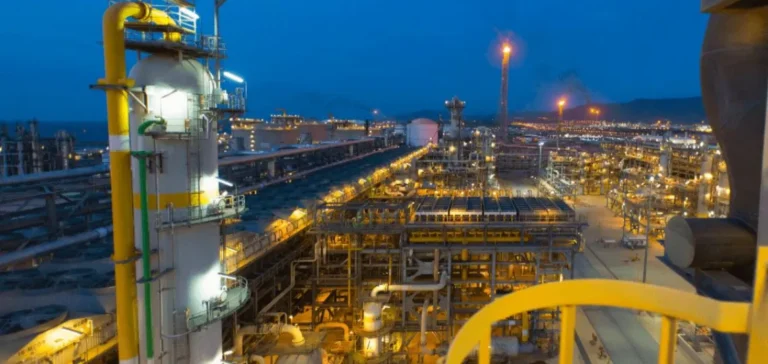Sonatrach has restarted a liquefied natural gas (LNG) train located in the industrial complex of Skikda, on Algeria’s northeastern coast. This restart follows a planned maintenance shutdown previously announced by the state-owned company. With a nominal capacity of 4.5 million tonnes per year, it is the only operational train on the site, which is strategic for the country’s LNG deliveries.
Capacity strengthening after modernisation
The reactivation of the unit is part of a broader programme to improve infrastructure reliability. According to available data, the facility had already undergone a technical shutdown in 2021 for the repair of a turbine control mechanism, before restarting on July 30 of the same year. The return to full capacity announced on October 19 allows Algeria to stabilise its exportable supply, notably to partners in the Mediterranean and Europe.
Since 2023, Sonatrach has accelerated its modernisation efforts at several sites. The Skikda maritime terminal was expanded with the commissioning of a new jetty in March 2024. This infrastructure now accommodates larger LNG carriers, thereby improving logistical flexibility and exportable volumes.
Rising investments in natural gas
The restart of the Skikda unit comes as Algeria has announced a $60bn investment plan for the energy sector between 2025 and 2029. A significant share of this funding is allocated to natural gas and related infrastructure, amid sustained growth in global demand.
The Skikda site, commissioned in 2013, was built to replace facilities destroyed by an explosion in 2004. Together with the Arzew terminal, it forms one of the country’s two major liquefaction hubs. Combined, these facilities have an estimated production capacity of 25.3 million tonnes per year, according to data from the International Group of Liquefied Natural Gas Importers (GIIGNL).
The operational reinforcement of Skikda could consolidate Algeria’s position as a key LNG supplier, as several importing markets seek to diversify their sources. According to industry projections, the stability of liquefaction infrastructure remains a critical factor in ensuring continuity of export deliveries.






















